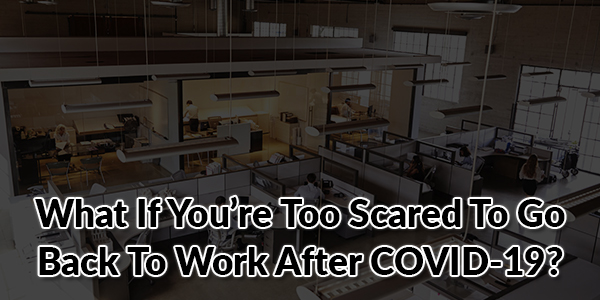
We’ve been dealing with the coronavirus on a national level in the United States now for a few months. Initially, most states opted to shut down non-essential businesses.
What was characterized as non-essential was dependent on the state and even the city?
Even while shutdowns are easing in most places, there are some businesses and industries that never closed down throughout the entire situation.
One example of an industry that didn’t close down and was considered essential is meat processing. Meat processing plants around the United States are an integral part of our supply chain.
However, employees at many of these plants nationwide have been testing positive for coronavirus. As an example, Smithfield Foods in Sioux Falls, South Dakota provides 4% to 5% of the nation’s pork. In March, an employee tested positive for coronavirus, but the plant stayed open. Eventually, cases began to rise and the plant itself was identified as a hot spot for the virus.
Then, the plant said they’d be closing indefinitely after hundreds of the workers tested positive.
This has caused serious supply chain issues as far as meat, but it also brings about other questions. There has been a push for meat processing plants to reopen or continue production, but what if you’re an employer in this industry or any industry and you’re being called back to work, but you’re afraid?
Maybe you have an underlying condition, for example, and your workplace is reopening, but you’re nervous.
What should you do? What options do you have, if any?
Communicate With Your Employer:
Before you head back to work, if you’re nervous or high-risk, or even just want to make sure you’re going to be safe, the best and most important thing you can do is talk to your employer.
You should first communicate any specific health concerns you have, especially if you are high-risk.
If your job allows you to telecommute, even some of the time, talk about whether or not that’s something your employer will agree to.
You can also ask your boss if maybe you can wait a bit longer before you return, especially if you have underlying health concerns.
Most businesses are doing phased reopening anyway, and your employer may only be able to operate at 25% or 50% capacity right now, so it could work out well to have some employees stay home for the time being.
Your employer is required to provide a safe place to work, so you can talk to your boss about what type of personal protective equipment they might be offering, and what steps they’re taking to make sure the workplace is safe and healthy.
If your employer isn’t doing something and you think they should be, suggest it to them and let them know it would make you feel more comfortable.
Can You Get Unemployment If You Refuse To Work?
Unemployment is usually dependent on whether or not you’re available to work and able to work.
If your employer calls you back to work and you refuse, it’s more than likely going to mean you won’t qualify for unemployment, which makes a difficult situation for employees.
If you turn down work, your unemployment claim stands a very real chance of being turned down.
There are a few exceptions that have been outlined under the CARES Act, though.
The CARES Act And Unemployment:
The CARES Act was recently passed in response to the pandemic and related job losses in the United States.
There is a program that was set up under the new legislation called Pandemic Unemployment Assistance.
This makes some of the old unemployment rules less strict, and people who wouldn’t ordinarily be eligible for unemployment benefits are included under the changes.
Some examples of reasons you might be able to get unemployment under the CARES Act are:
- You’re diagnosed with COVID-19
- You have symptoms of coronavirus, and you’re working on getting an official diagnosis or someone in your house has the virus
- You’re caring for someone in your household or a member of your family with coronavirus
- You’re the primary caregiver for a school-aged child who can’t go to school because it’s closed or a member of your household who can’t go to another facility
- You can’t get to your workplace because of coronavirus quarantine
- A doctor told you to self-quarantine
- You quit your job as a direct result of COVID-19
If you do have work available to you, it’s important not to lie to get unemployment the additional $600-a-week payment available under the CARES Act. This could lead to you having to pay the money back.
What Can Employers Do?
Employers are nervous, too right now. They’re likely worried about convincing their employees to come back, but at the same time businesses and in particular small businesses are facing serious financial hardships.
Unfortunately, many businesses may not recover from the pandemic shutdown.
If you’re reopening, the best thing you can do as an employer makes every effort to convince your employees and customers that you value their health and safety and that you’re doing everything in your power to help them stay healthy.
Invest the time to research the best course of action for your industry and your type of business, and make it clear to employees when you call them back all the steps that you’re taking.
While it can cause more short-term pain to make some of these efforts, it’s likely to mean long-term gains if you can weather this storm.
If you’re an employee and you feel like your employer is blatantly ignoring safety guidelines or not providing a safe, healthy workplace, then you might want to speak to someone who can help you.
This could mean that you report it to your state Department of Labor, or perhaps that you even speak to a lawyer. We all have a responsibility to do things as responsibly as we can right now, including employers.














Be the first to write a comment.